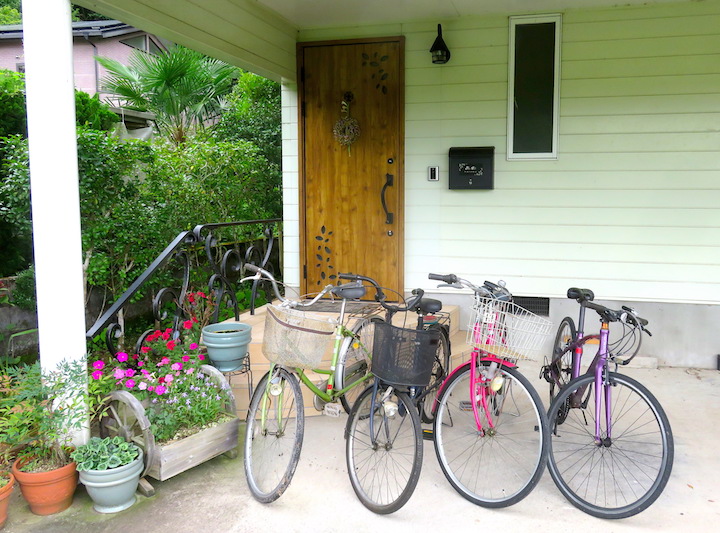
We’ve had a few visitors here in Japan, from other parts of the world. It’s certainly always a welcome change of pace to have people come and stay with us. We have a guest room in a two-story house affording decent privacy for all, and four bicycles. Taking folks around our charming town is such a pleasure for us and usually a surprise for them. Most people’s preconceptions of Japan are like what mine were before I finally came to this fascinating country. Big crowded cities, tall buildings, lots of cement and bright lights. But the truth is, Japan is 70% covered with forest, and there is a breathtaking variety of landscapes: mountains, rivers, volcanoes, lush forests, beaches, valleys, lakes, and vast stretches of farm lands — some terraced — growing everything that can be grown here.
We are fortunate in that our traditional rural town, Tambasasayama, is situated within an hour-and-a-half of three major cities, Kyoto, Osaka, and Kobe, each quite distinctive and offering unique charms. This affords easy access to the intensity of urban life, when we want a break from peace, quiet, fresh air, and the slow pace of a farm town. In fact, the train system in Japan makes it possible to travel just about anywhere in the country, except Okinawa which is separated from the main islands by almost 1000 km (620 miles). An auto isn’t necessary to see everything you might want to see, though the highway system is itself is spectacularly well-built, well-maintained, easily negotiated, and efficient.
Anyway, here are some of the good people who we’ve had the pleasure to host.

Gilly: My dear friend, Gilly, visited in 2012. She arrived from France, though I actually knew her from Portland, Oregon, my last hometown in the U.S. Very very sadly, Gilly has passed away, a victim of breast cancer. I’m so glad I got to see her one last time, and she got to meet Masumi. Gilly was an incredibly beautiful, highly evolved person, a respected teacher and skilled practitioner of an alternative health system called Body Talk. She was in Japan to give classes and offer treatment in Tokyo. She has certainly helped many, many people and spread a lot of love over the decade I knew her.
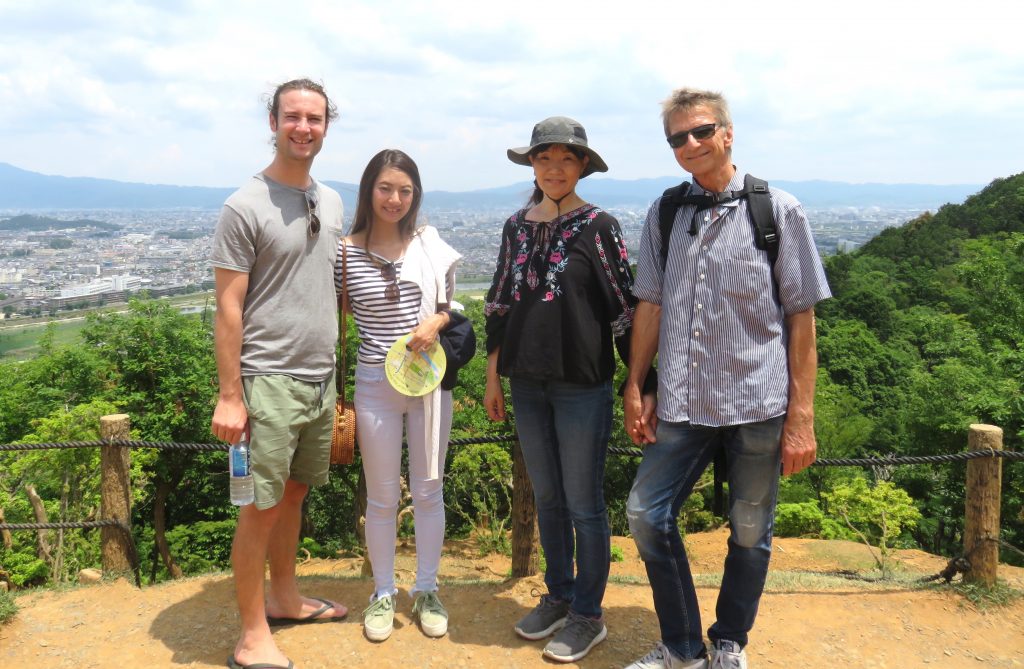
Owen: I met Owen at the Peace Stupa in Leh, Ladakh, in northern India. By pure coincidence, he has very strong connections to Japan and speaks fluent Japanese. He’s visited Japan a few times and we’ve buddied around. I met him in Osaka one time and we did the town. His last visit, he brought his fiancé Chi, a lovely Japanese lady, who he met in his native Australia. Owen is a very talented songwriter — another coincidence! — and in Ladakh, he and I jammed on keyboards and guitar with a Buddhist monk, a friend of the Dalai Lama. This sounds crazy, doesn’t it? But it’s true!
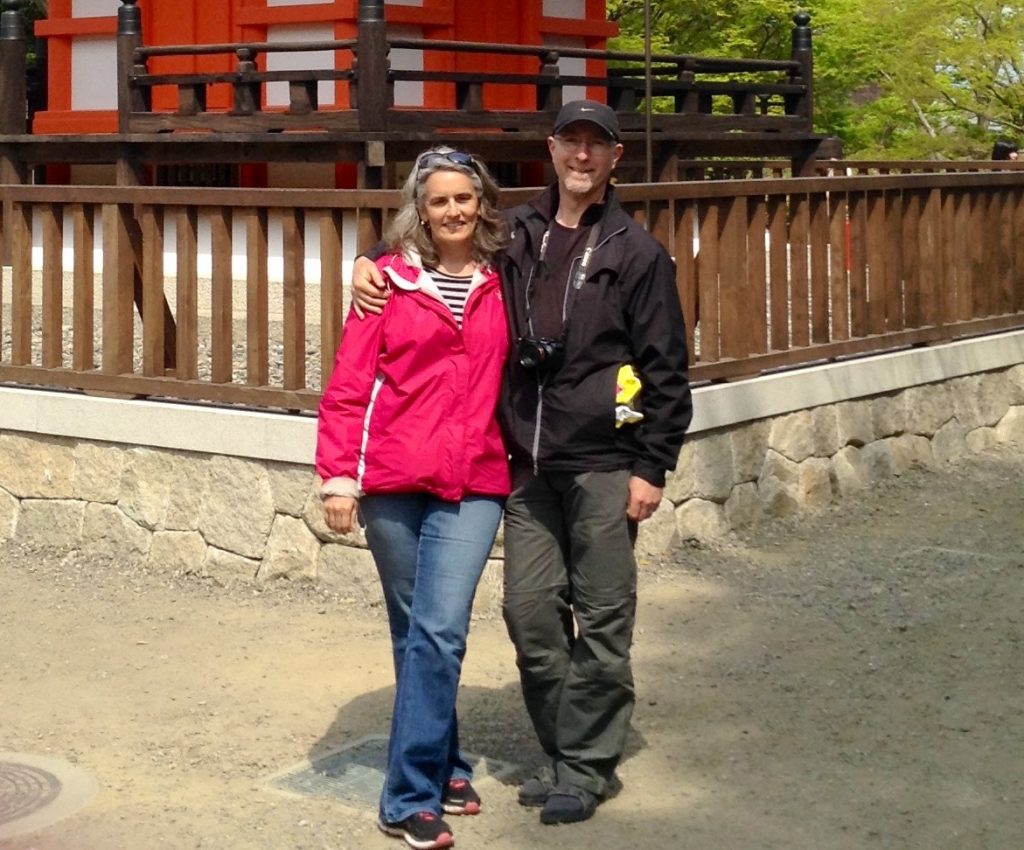
Travis and Michelle: Travis and I go way back. Best friends when I lived in Portland, Oregon, he and I worked together, hung out, wrote songs, played in bands together, did a lot of recording in my studio, spent countless hours discussing politics and philosophy. Back in those days, he and I went to New York and Los Angeles on music business. Travis is a multi-talented, truly brilliant guy. He and his wife, Michelle, came to Japan spring of 2014. She is now a librarian at a public school in Vancouver, Washington, where they live. Travis is into many things these days, building buildings, renovating houses, creating a financial empire, teaching “pickleball” — a variant of tennis — mastering golf.
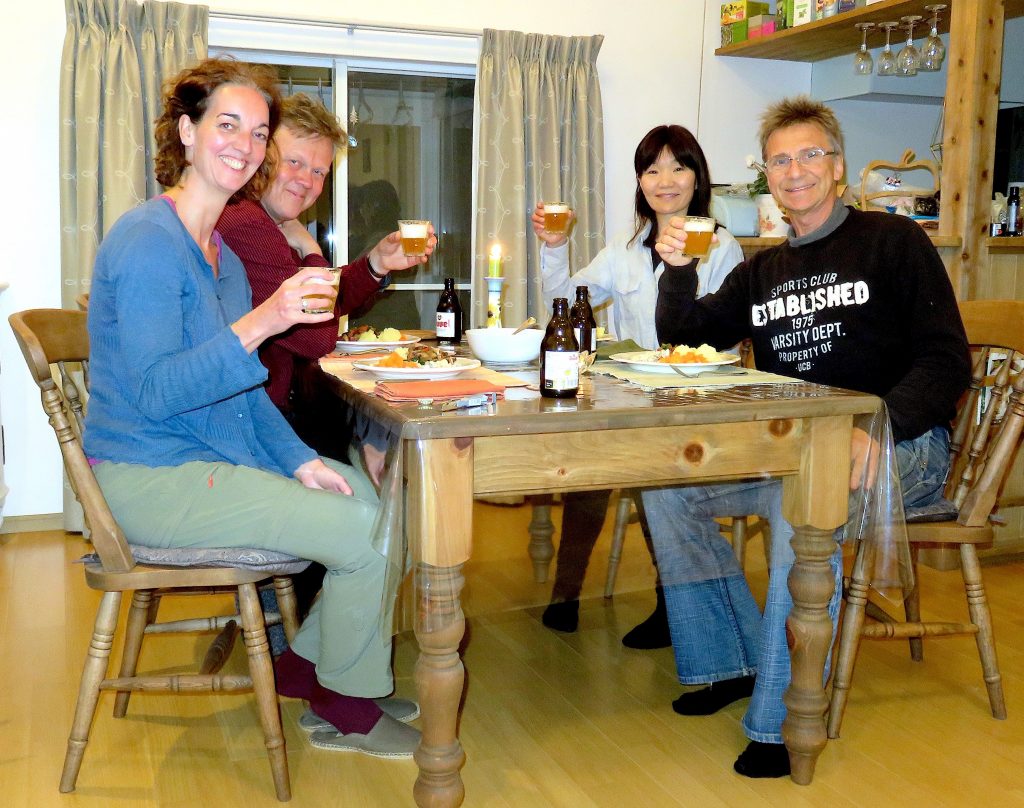
Alex / Alex and Corine: In 2010, I lived in Ho Chi Minh City, Vietnam for almost six months. It was there I met Alex. For his last couple weeks in the country, we got to know each other and I got to know what an incredibly special person he is. We kept in touch. In fact, July 2013 Masumi and I visited Alex in Den Haag, Netherlands where he lives. He was a phenomenal tour guide and not only showed us around the immediate area, but introduced us to Amsterdam, one of the real highlights of that holiday in Europe. Then in 2016, he brought his girlfriend Corine for two weeks here in Japan. Alex was so enamored with the country, he returned solo December 2018. We talk two or three times a month via Skype. Alex is one of my all time favorite people!
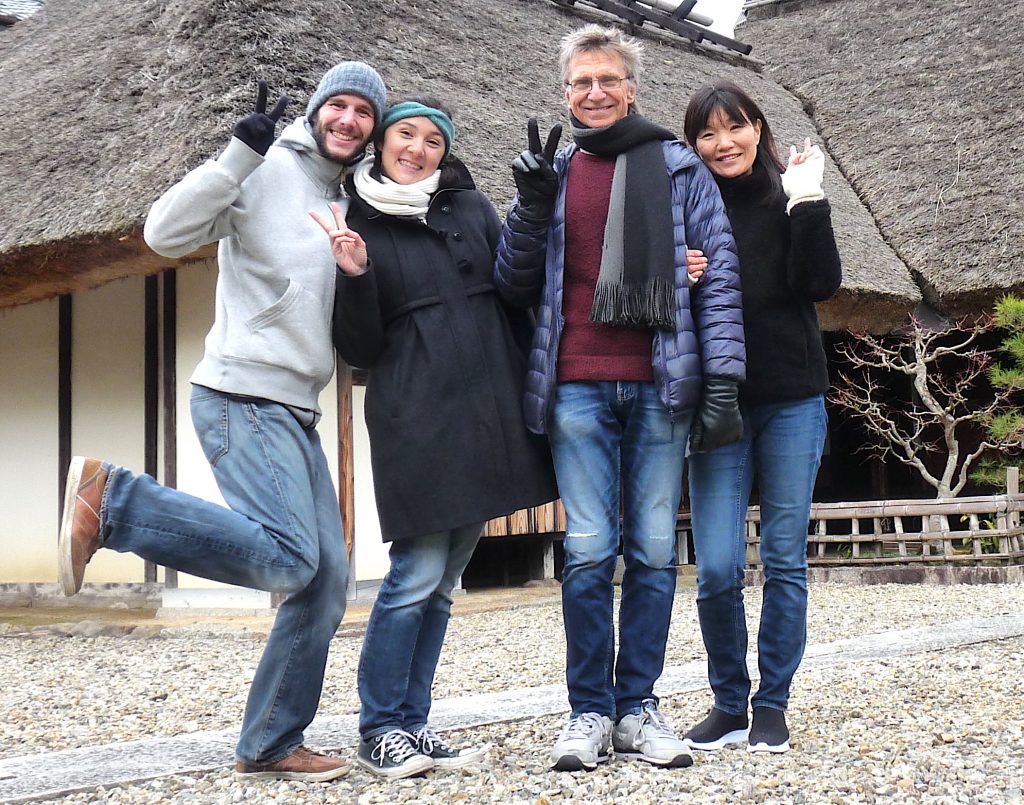
Moose and Carmen: Masumi and I met Moose — his real name is Börge — and Carmen during our trip to Russia and Scandinavia, summer of 2015. We couchsurfed their place in Stockholm for three days. They were perfect hosts! Then they came to Japan to enjoy the blossoming of cherry blossoms in 2019, and we not only showed them around town here, but took them to Himeji to see the famous castle there. At the end of their stay here, they announced that they were expecting a baby, and little Joel became a member of their family later in the year. From Tambasasayama, Moose and Carmen headed off on their own to Koyasan, Nara, Kyoto, and to attend a sumo practice in Tokyo. Morning sickness and sumo wrestling? Does that sound like a good combination?
Masumi and I have talked about opening a B&B after she retires from teaching. We love having people stay with us, love meeting people from other countries. We especially enjoy having friends come to visit. I keep the bikes oiled and tuned, make sure the tires are inflated. Nothing beats being prepared.

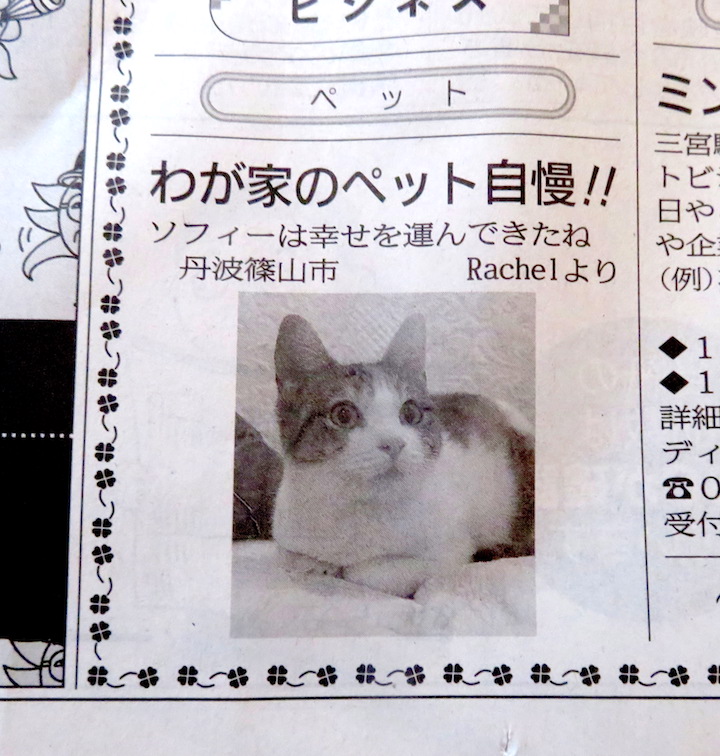



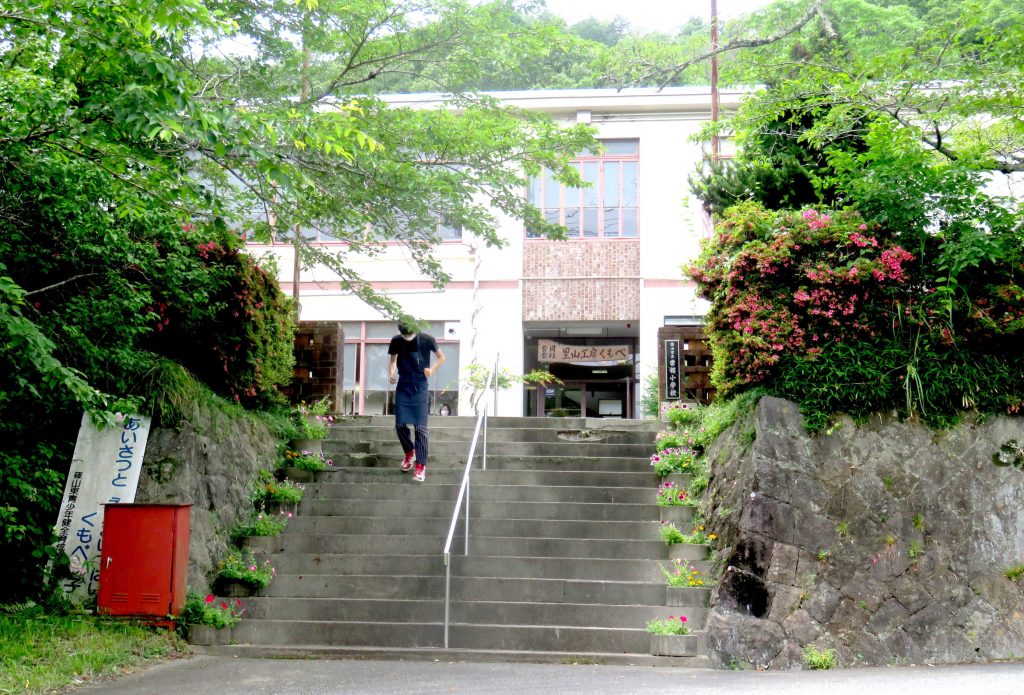

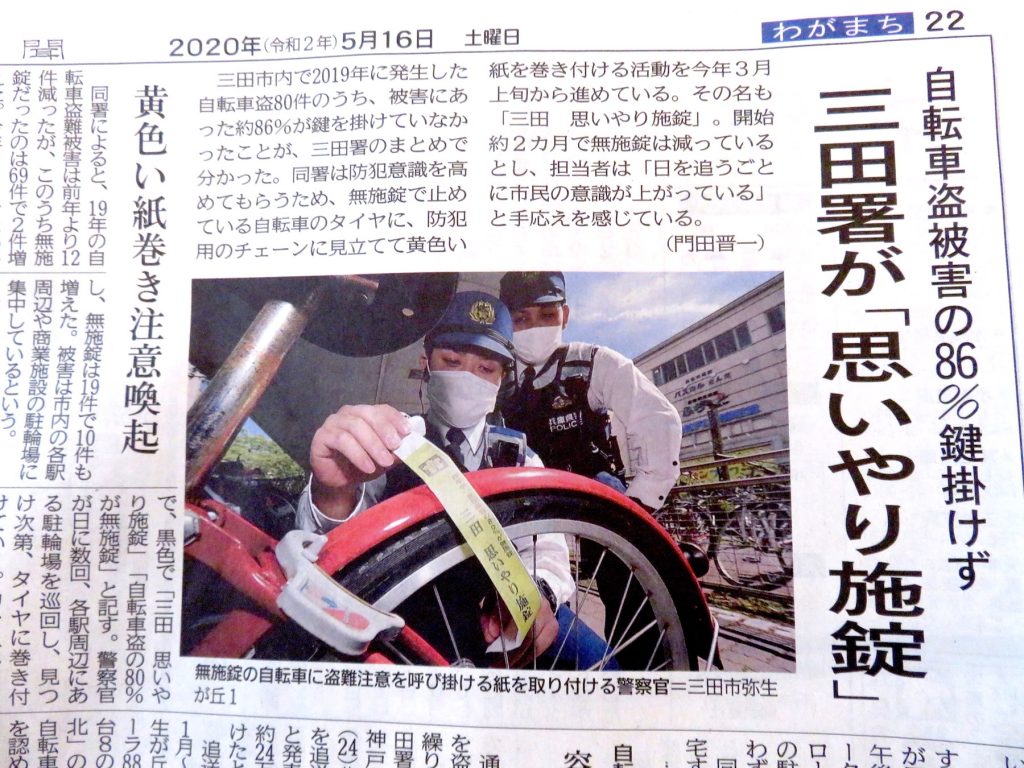
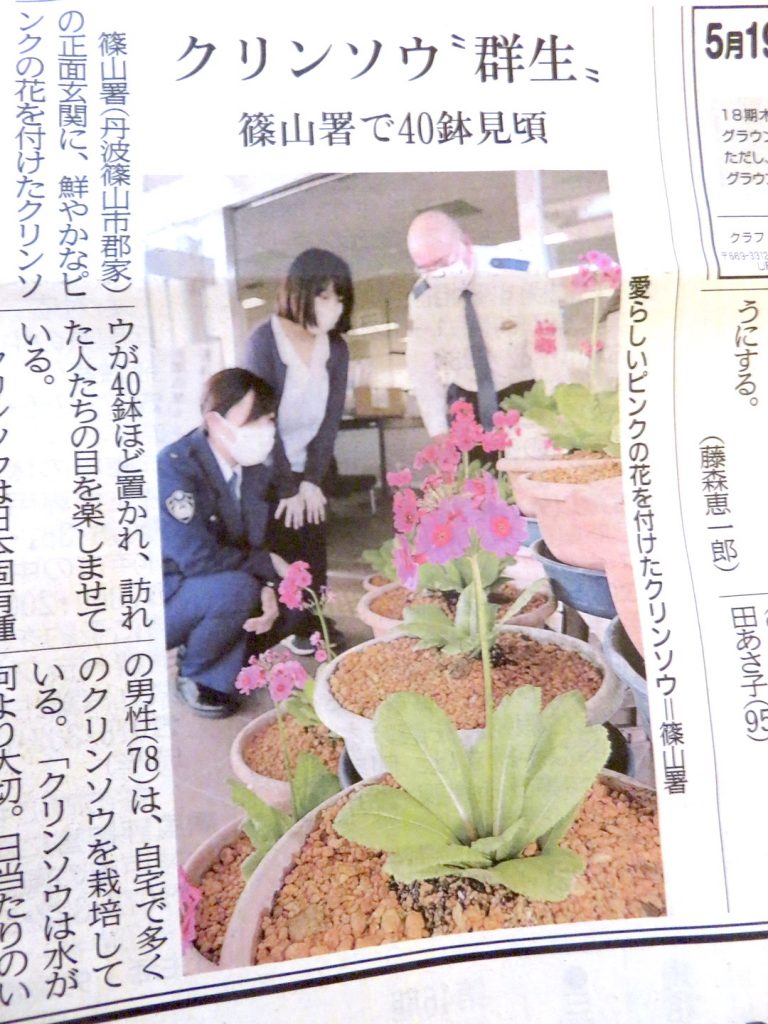


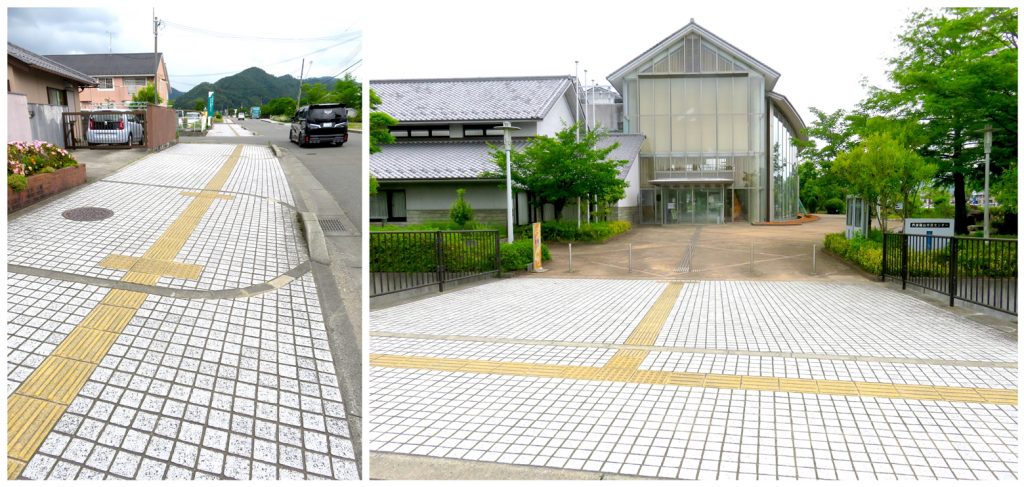

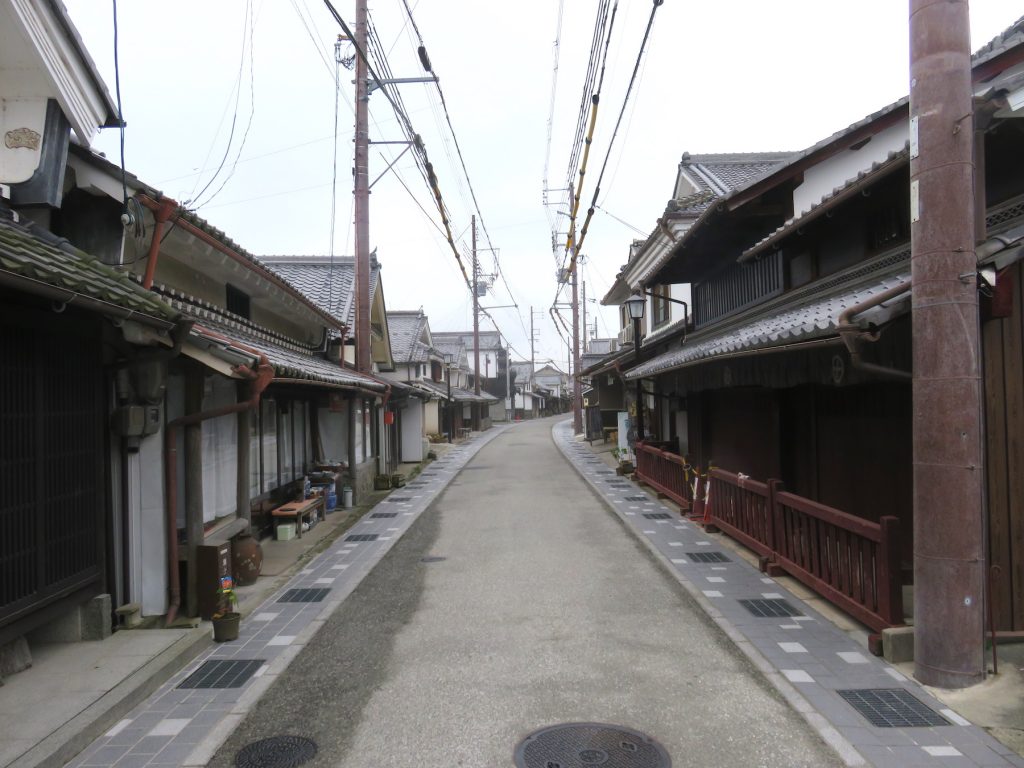
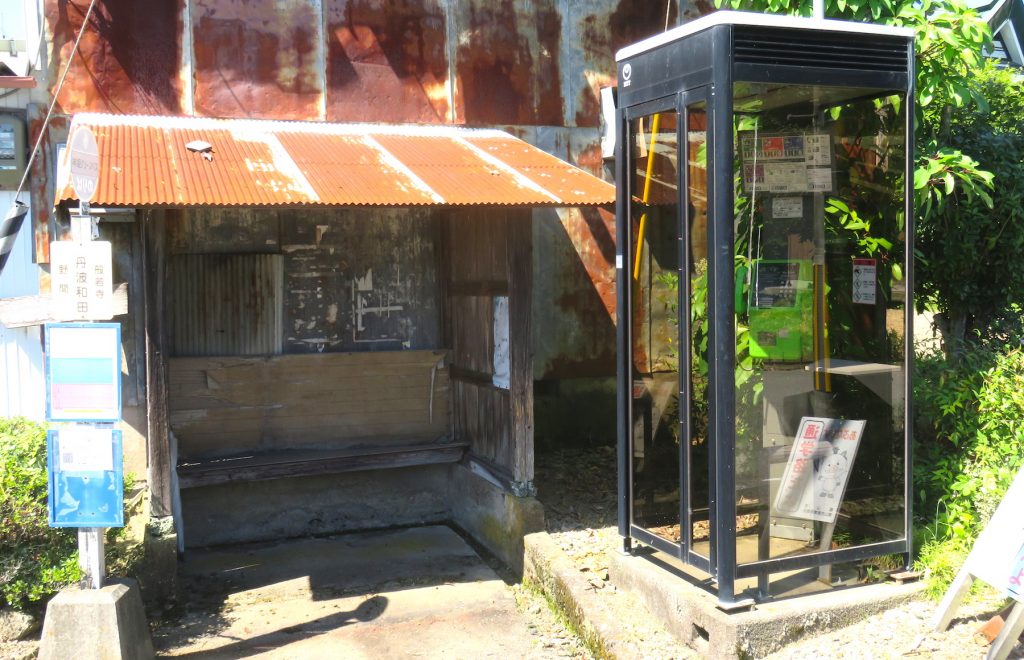

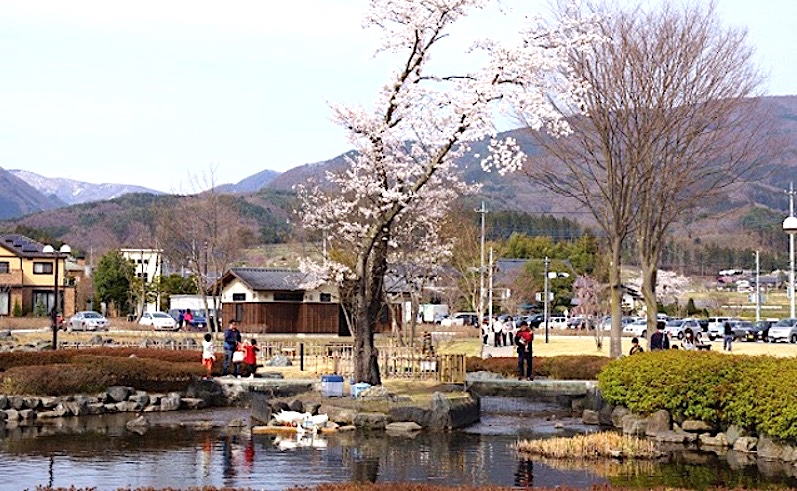

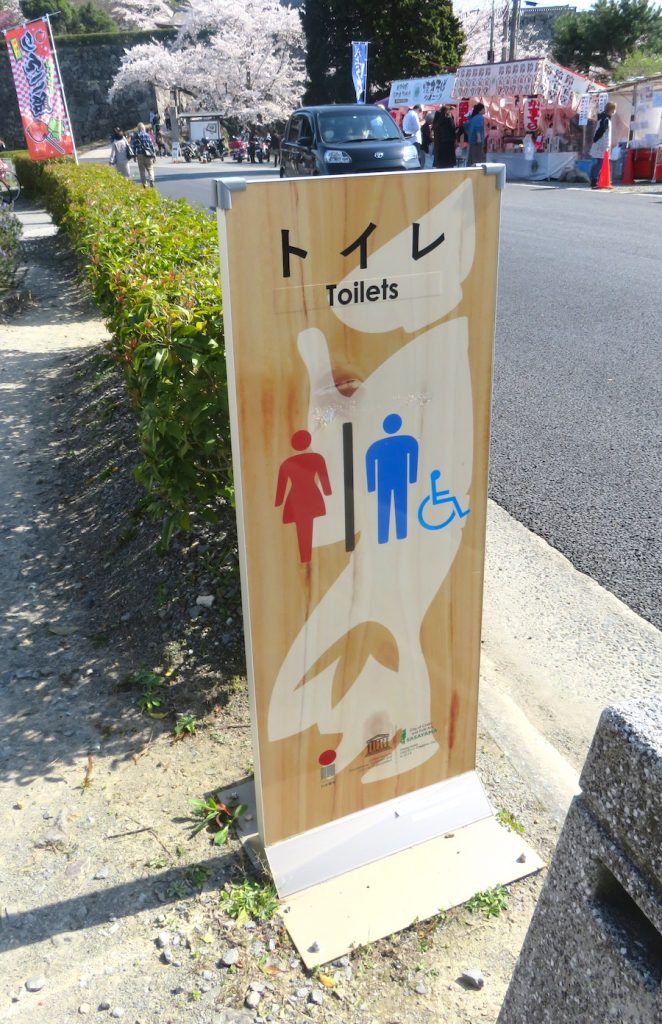






Life In Japan: TVs on TV
Gender roles are sharply defined in Japan. The simple truth is, men rule the roost here. Yes, folks, it’s a highly patriarchal arrangement. For example, the idea that marriage is a partnership, one that requires empathy, fairness, consideration, diplomacy, mutual respect and generosity, is more the exception than the rule. The man is the head of the household. His tyranny is regarded as absolute and accepted as normal. Women do his bidding, cook the meals, clean the house, take care of the kids. The man is the primary breadwinner and that fact is never forgotten.
It is no exaggeration to say that Japan is a “traditional” society in that respect, similar to what is seen across vast swaths of the planet’s inhabited surface. I include Africa, South America, and most of Asia.
Of course, there is push back for better treatment of women, equality in both the home and the workplace, for equal rights not just as a legal window dressing, but in all actual areas of the day-to-day functioning of society: economics, politics, social relations.
Progress toward equal pay is discernible but painfully slow. Women are grossly under-represented in leadership roles, especially in the corporate world. The majority of political figures are men. Women operate within this framework, don’t like it, merely tolerate it. Younger women are certainly promoting other options, so this will change over time. Frankly from what I’m seeing, this could take a very long time.
Having said all of that, while I as a matter of principle prefer a more “liberated” society, I’m not here to judge. I’m here to accurately report what’s happening on the ground.
What I see in Japan, then, in terms of the “battle of the sexes” is what we in the West would regard as garden variety male vs. female “conservatism”.
Extreme conservatism!
Now . . . try to imagine my surprise, amazement, total belly-laughing delight, when I discovered looking over my wife’s shoulder one evening after dinner, probably the most unconservative thing I could have imagined here or anywhere, something which is not just a common occurrence, but one that doesn’t prompt any reaction from Japanese people whatsoever. To them this is as normal as raw fish on rice.
I’m referring to . . .
TVs on TV!
(Translation)
Transvestites on television!
Mind you . . .
There are hundreds of brutal homicides, the result of homophobia in less the open-minded enclaves of the West, accounts of “redneck” men who completely lose it when confronted by gender-bending of any sort. Disputes about which bathroom a transexual should use sometimes scream out as the feature story on the nightly news hour. The world having 15,000+ nuclear bombs armed and ready to destroy the human race apparently is not something to be concerned about. But the idea that the person in the next stall in a restroom is a guy with eyeliner and silicone breast implants is the real threat.
But here in Japan, as conservative as this country is in some ways, having a guy dress up as a woman, at least from what I now often see, is an acceptable practice and regarded as normal entertainment fare anytime of day or night, even for family television. Astonishing!
I’ve seen a number of transvestites on various shows over the years. But Matsuko Deluxe — you have to love that name! — is hands-down the best known TV on Japanese TV. She’s everywhere! Comedy shows and advertisements are her main venues. But I see her on billboards, in magazines. Seriously. She’s everywhere!
Correct me if I’m wrong . . . but Matsuko Deluxe is not exactly a beauty queen.
But who can argue with success?
Uh-oh . . . I just realized. Maybe the title of this article — TVs on TV — is actually a little inappropriate, though I do frankly think it’s devastatingly clever. ‘Transvestite’ is a term rarely used anymore. With the new identity politics insurgencies in full swing, genders are proliferating way beyond the basic boy-girl binary I grew up with — according to some gender bender aficionados in the U.S., there are at least 64 and as many as 81 genders. As a result, the terms ‘transsexual’ and ‘transgender’ are the preferred nomenclature of the new woke stormtroopers — aka the PC Police — prompting many folks wonder if they should demand an induced coma, perhaps the only way of avoiding the minefield of attempting to formulate an acceptable sentence.
Truth is, the term I hear used most here all throughout Asia when referring to boys who are now girls — with or without a penis — is ‘ladyboy’. Ladyboys are not just “dressing up” or play acting. They are actually embracing all that it means to be a female. Frankly, many of them are more convincing females, than many females I’ve known over the years, especially in America, where feminism has savaged the whole idea of femininity. But that’s another whole topic.
The lady pictured on the right is also a ladyboy. She is used in an English teaching program here in Japan for explaining verb tenses. No, I’m not making this up. The lesson goes like this . . .
“This is Ms. Haruna Ai. She is a girl. She was a boy.”
Yes ! Excellent! Present tense. Present tense. Past tense. Got it!
And yes, the ‘Ms.’ is a nice touch. A nod to the legacy feminism of the 70s. Progress, no matter how you look at it, eh?
There you have it, ladies and gentlemen — and everything in between. A glimpse into gender blurring in post-modern Japan, where the man still wears the pants in the family . . . when he’s not wearing a mini-skirt.
Alright, folks!
Tell me you’re not amazed . . . shocked . . . astounded . . . speechless.
Impressed?
(Maybe a little bit?)